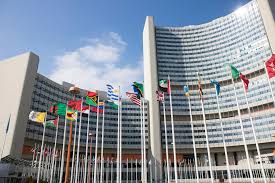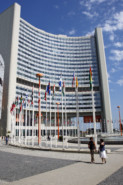Posted on 14 Jun 2017
On 19 June there will be a high-level debate at the United Nations in New York on transnational organised crime convened by the President of the General Assembly.
The debate marks the 25th anniversary of the assassination of the Italian Judge Giovanni Falcone by the Mafia, widely acknowledged to be a reason for galvanising the international community’s response to organised crime in the shape of the United Nations Convention against Transnational Organised Crime (UNTOC).
Over the past twenty-five years since the murder of Judge Falcone, the task of responding to organised crime has become more rather then less complicated. The phenomenon has diversified – both geographically, in terms of the number of criminal markets and in the degree of criminal penetration of state structures. There are few simple answers.
The focus of the New York event is on the implementation of the UNTOC and its Protocols. The instrument provides a crucial blueprint for the global response to organised crime. But the focus on the UNTOC also raises the question what can and should be done within the multilateral system itself to meet the challenge.
The UN-system remains, for reasons of structure, resourcing and politics, often weakly positioned. The UNTOC may have provide a vision and a blueprint to respond, but it is difficult to present clear evidence that success is being achieved. And, while the UN’s overall work on the ground is multifaceted it is hard pressed to provide a truly strategic response to organised crime.
Member States may well be increasingly reluctant to allow a growth of the multilateral system into areas that they view as the prerogative of states – law enforcement and security questions being at the centre of what governments define as their core prerogatives. This certainly constrains what the UN can do on organised crime, particularly in a period when the policy agenda is literally packed with other issues (no matter if many of them have connections to the debate on organised crime itself).
Yet, the Sustainable Development Goals, the linkage between conflict and organised crime, and the cross cutting nature of the phenomena in multiple areas where the UN is active, provide an opportunity for the organisation to respond more effectively and creatively. But this requires a system wide and strategic vision.
This GI Policy Brief explores how a start might be made through a 5-step action plan.



